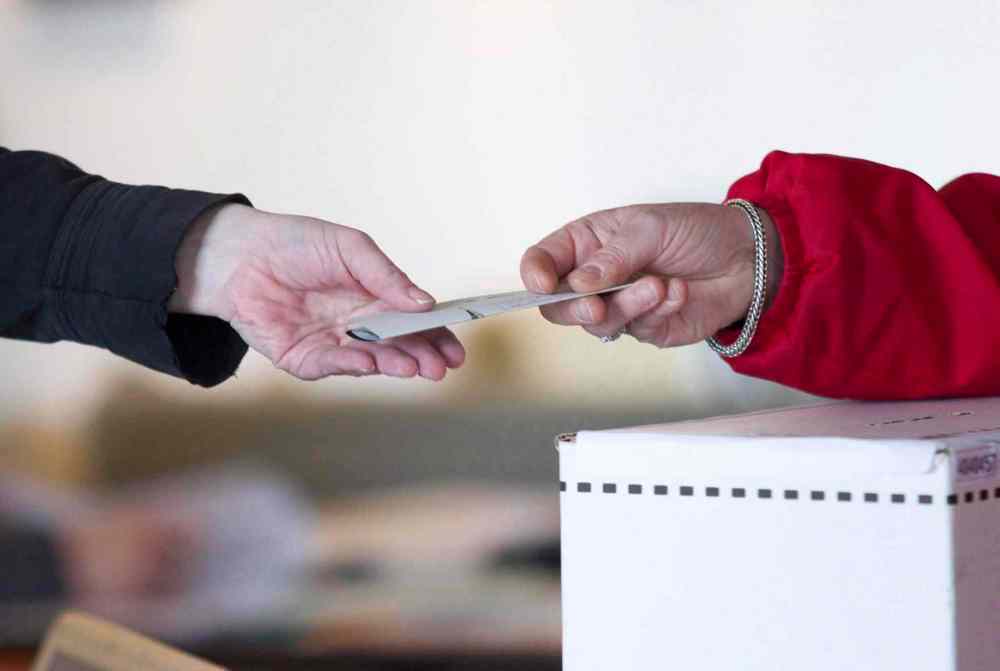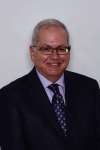Militia for democracy
A corps of young Canadians should work at polls on voting day
Advertisement
Read this article for free:
or
Already have an account? Log in here »
To continue reading, please subscribe:
Monthly Digital Subscription
$1 per week for 24 weeks*
- Enjoy unlimited reading on winnipegfreepress.com
- Read the E-Edition, our digital replica newspaper
- Access News Break, our award-winning app
- Play interactive puzzles
*Billed as $4.00 plus GST every four weeks. After 24 weeks, price increases to the regular rate of $19.95 plus GST every four weeks. Offer available to new and qualified returning subscribers only. Cancel any time.
Monthly Digital Subscription
$4.99/week*
- Enjoy unlimited reading on winnipegfreepress.com
- Read the E-Edition, our digital replica newspaper
- Access News Break, our award-winning app
- Play interactive puzzles
*Billed as $19.95 plus GST every four weeks. Cancel any time.
To continue reading, please subscribe:
Add Free Press access to your Brandon Sun subscription for only an additional
$1 for the first 4 weeks*
*Your next subscription payment will increase by $1.00 and you will be charged $16.99 plus GST for four weeks. After four weeks, your payment will increase to $23.99 plus GST every four weeks.
Read unlimited articles for free today:
or
Already have an account? Log in here »
Hey there, time traveller!
This article was published 29/09/2015 (3772 days ago), so information in it may no longer be current.
More than once, Canadian soldiers have risked life and limb in defence of freedom and democracy. Most of us speak of their sacrifice as a sacred act of public service — and, rightly so. Yet when it comes to the practical application of the democratic rights these soldiers fought to defend, we respond by muddling our way through the elections process once every four years.
Maybe it’s time to change that.
As you read this, Elections Canada is racing to hire staff at the last minute, less than three weeks before E-Day. Most will staff the polls with little training. Others will be on their third or fourth election, and a few of them won’t know (or care) if any rules changed since they were first trained for elections work. Incredibly, senior election officials at the riding level are chosen from lists recommended by political parties. Yet despite these shortfalls, most elections staff will serve voters well. I’ve worked enough elections that I’ve complimented probably hundreds of election staffers on their patience, courtesy and diligence.

However, I’ve also worked in politics long enough to know that too often, our elections systems are careless. I’ve seen rules inconsistently applied and voters treated rudely; citizens have literally been turned away from polling stations as a result. I’ve seen clerks on power trips throw out scrutineers wearing blue jeans — “a partisan colour,” as if that was going to influence a voting decision. Rules on finances, signage and voting procedures go unenforced for a lack of staff to investigate complaints. Here and there, voters show up to vote, only to learn their poll isn’t open “because of a shortage of workers.”
Once Election 2015 is over, we have a chance to rethink the system from scratch. I’m not talking about new voting models or parliamentary reforms — though both are worthy of consideration. I’m talking about thinking of the democratic process as a form of true national service. I’m talking about creating a permanent Canadian Democratic Corps.
This service would be staffed by young Canadians aged 18 and up who would be recruited and trained in much the same way as we’d recruit a national militia — but think of this as a militia for election work, rather than for disaster relief or overseas combat. Recruits would have a chance to earn extra income and gain work experience, forming a pool of trained staff available well in advance of any election. Young people would be more likely to vote, simply because so many more of them would be at voting stations running the process once it was underway. Staff would be available at cost to provinces, municipalities, or even to unions or non-profits to staff elections, allowing for some sharing of costs.
But don’t just think of this as a matter of hiring students to stand at polling stations. Young coders could serve by developing software to manage elections more effectively. Business students could support the logistics behind the election, and so on through a range of technical, marketing, legal and logistical disciplines. The most promising members of the new service would have a chance to work in different ridings, giving them a chance to see more of the country while they served.
A permanent democratic corps could offer a distinctively Canadian service to the world. Peacekeeping was once our foreign policy calling card, but peacekeeping is usually a matter of stepping in to minimize damage once a conflict has reached a boiling point. However, in the 21st century, many of the world’s largest conflicts began internally after botched or untrustworthy elections. Better, fairer elections could help to prevent conflicts outright. With a corps of young democratic experts — and, perhaps, with additional security trained to protect election staff and ballot boxes — we could send volunteers to help struggling democracies get through a difficult or divisive election process.
Would this approach cost more? Certainly. But we spend a small fortune on national, provincial and local elections bureaus now, and all we get out of them at the end is a ballot count. We’ve also spent untold billions in the last century on exchange programs and nation-building exercises targeted at young Canadians. We’ve even sacrificed lives to protect the ideal of democracy abroad.
With those costs in mind, it’s time to stop treating Canadian elections as an improvised chore.
It’s time to start seeing the democratic process as an opportunity and to build something more Canadian in the process.
Brian Kelcey is an urban public policy consultant. He previously served as a senior adviser to the mayor of Winnipeg and as a senior political adviser at Queen’s Park.
History
Updated on Tuesday, September 29, 2015 7:41 AM CDT: Replaces photo















